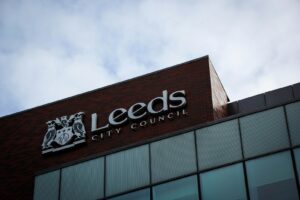Analysis by climate charity Possible has revealed how parking suspension costs are preventing councils from using these spaces for other uses, such as community gardens.
The charity found the weekly costs of a parking bay suspension are, on average, 115 times more expensive, at £115 a week, while the costs of a weekly parking permit come to approximately £1.38.
Possible says this means English cities are allowing private vehicles, which can go unused for 95% of the time, to dominate public spaces.
If more parking bays were suspended, they could be used for other purposes and provide room for social spaces with seating or cycle parking, boosting quality of life.
Hirra Khan Adeogun, Head of Car Free Cities at climate charity Possible, said: ‘We’re letting private cars hold our public space hostage. The fact that some cities aren’t even charging for parking just goes to show how local politicians are missing opportunities to break cities free from car dominance. Most of the time private cars are going completely unused and taking up valuable public space. We need to shift to a better system; one that prioritises people over private vehicles, gives space for communities to thrive and makes them happier, healthier, and greener places to live.’
The charity obtained data from local authorities based in the UK’s ten biggest cities and found Bradford, Leeds, and Nottingham did not charge for a weekly parking permit, while parking bay suspension costs come to £70, £187.60 and £23.38 respectively.
Liverpool was discovered to charge just £0.04 for a weekly parking permit, while a weekly parking bay suspension cost £193.00 in the city.
There were also considerable differences between within the other six cities analysed, including London, Manchester and Birmingham, with parking bay suspensions between 33 and 353 times more expensive than a parking permit.
Possible has said the figures reveal how UK cities prioritise private car use over public space and is calling on councils to re-evaluate the costs of parking permits to truly reflect the costs of car ownership.
Cars are responsible for pollution, road danger and loss of space, while affordable and easy processes can help residents to reclaim public space and reduce car dominance.
Photo by Eugene Chystiakov

















Leave a Reply